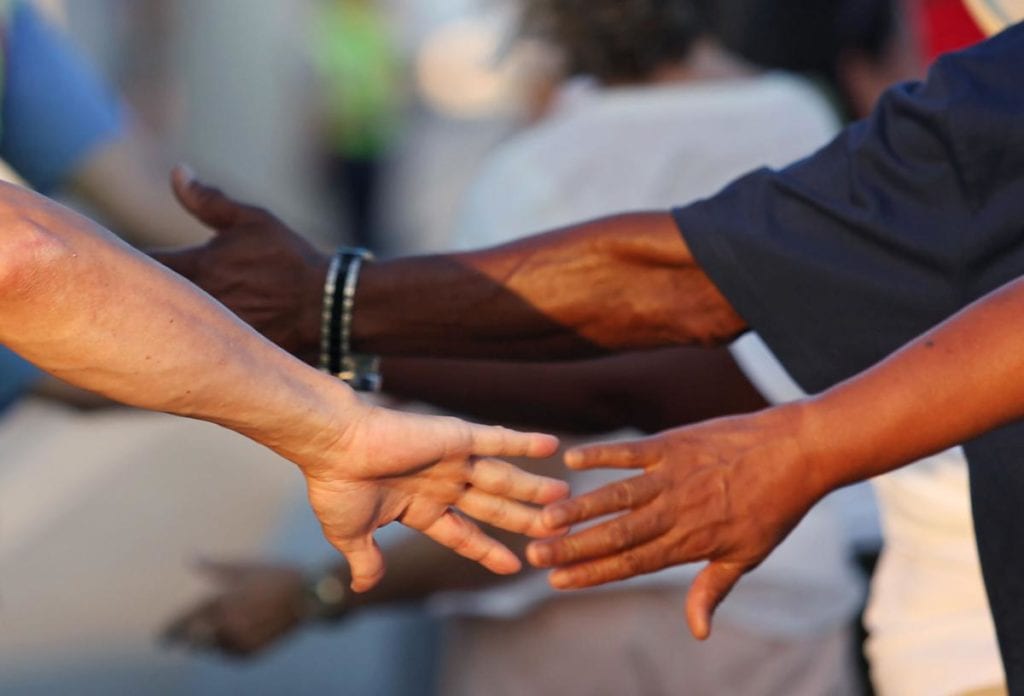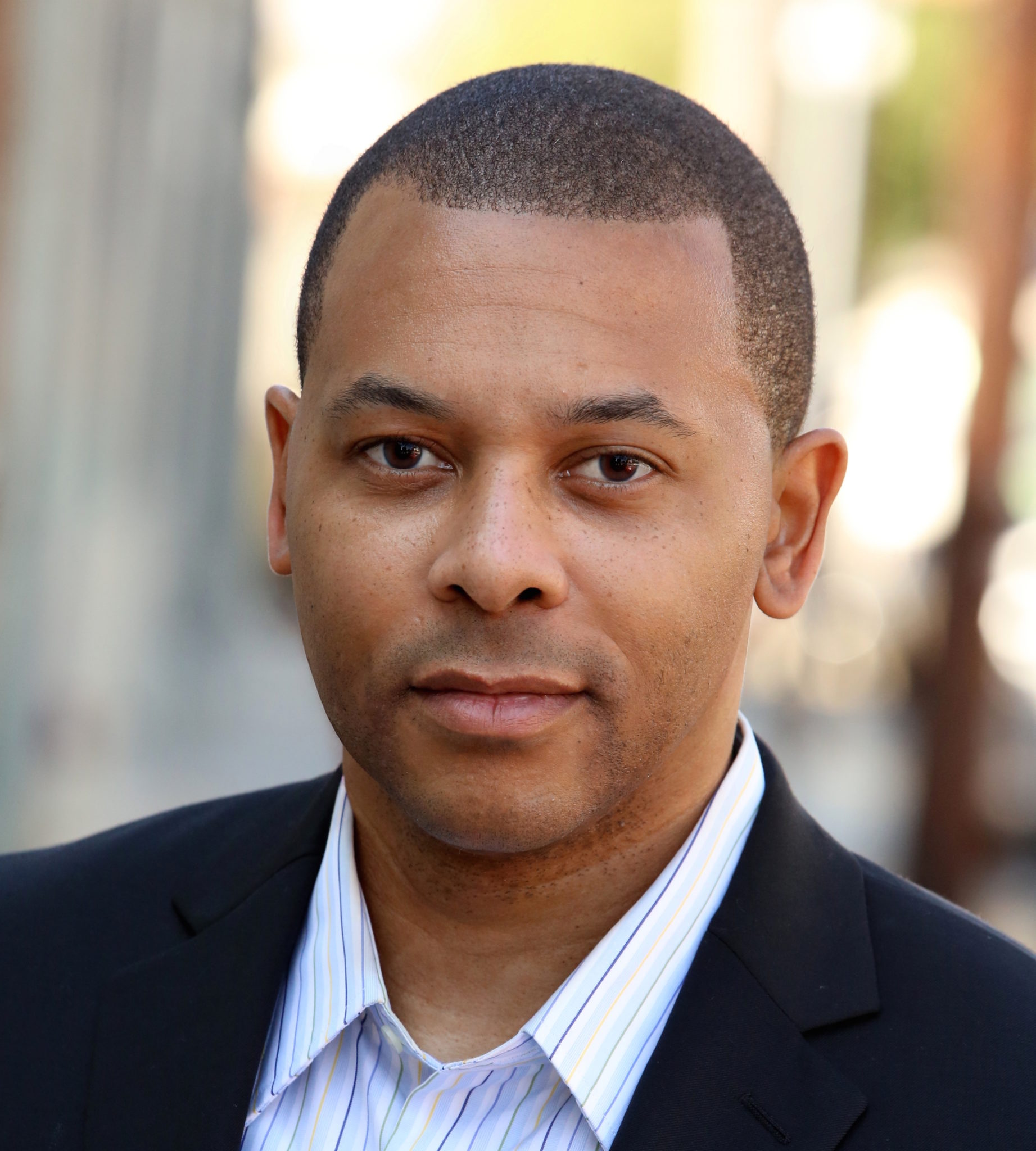Is individualism an “American white value”? The fad of racializing everything, even long-standing virtues of individual merit, is further eroding our already-fragile civic ties.
Critical race theorists like popular author Robin DiAngelo condense the complexity of our anthropology into racial identity. Antiracist ideology ignores the intrinsic worth of persons in favor of pitting oppressed against oppressors.
Antiracists stress social factors, instead of individualism focusing on personal responsibility, merit, and work. Antiracism is more collectivist. It isn’t a valid framework of anthropology, soteriology or economic critique for Christians because it focuses on power and sacralizes coercive redistribution of wealth. Antiracists also stress structural influences rather than individual choices.
Claiming that systems are responsible for black suffering and also will be the cure is a contradiction. The “systems” that are sources of black problems are also supposed to save blacks? This perspective reinforces victimhood for the very people antiracists claim to help.
Christianity should reject this structuralism because it fosters dependency, resentment and existential impotence. A constructive Christian conversation stresses humanity and dignity through creation in the image of God, not race. Our ethnic composition – a blessing from God – augments human dignity but isn’t conditional upon it.
Having been renewed by Christ, our focus isn’t on the antiracism methodology that reinforces racial discord but is guided by the spirit of love, forgiveness, and reconciliation. Transcending artificial racial limitations allows opportunity for repentance, forgiveness and grace, which taken together is actual justice and is available within the Christian paradigm of redemption and brotherhood.
Blacks and whites as equal collaborators working toward biblical justice exemplifies the coming Kingdom. There’s no disproportionate responsibility placed on whites to labor toward justice while blacks wait helplessly but expectantly. Christian values of “equality” reject determinism, helplessness, and stigmatization. In Christian conversations, blacks and whites engage in mutuality. Both are to live out redemptive truth.
Jesus was very clear that His followers are to upend the normal cycle of anger and hostility. As disciples of Christ, we are called to initiate reconciliation that begins with forgiveness, humility, courage, and love, no matter how anguishing.
If God is merciful and forgives all manner of sins, there is a moral and religious obligation to extend to neighbors the same act of mercy. Taking the first painful, humble step of forgiving past grievances, admitting pain and anger, is to live in the freedom from hatred that defines renewed life in Christ. Rejecting grievance, and forgiving white Christians, approaching God’s altar together, in mutual edification, is to recapture a black anthropology rooted in the dignity and equality of all God’s image bearers.
Jesus urges His listeners to guard against faultfinding, even for the culpable, disrupting a cycle dividing people and societies. The moral foundation of Jesus’ nascent community is required to reject the emotionally satisfying temptation to belabor past injustices leading to cumulative judgment and condemnation of people and groups. This pattern of resentment, retribution, and recrimination is central to critical race theorists. In no way does Jesus’ teaching minimize injustices or advocate forgetting. But Jesus asks that these injustices become irrelevant for reconciliation. This forgiveness will heal persons, the church and society.
People need to examine themselves before highlighting collective faults in others, which provokes resentment. Only then can we soberly approach others to mitigate or remove their faults rather than condemnation. Jesus’ subversive teachings undercut an unearned moral authority by antiracists who exploit the misdeeds of others for self-validation.
If black Christians, individually and collectively, took the initial steps to make past racial sins immaterial to restoration, blacks could co-engineer a chasm-closing bridge of interracial, multi-ethnic collaborations in church and society. Blacks would have to abandon the prospect of whites apologizing sufficiently for black satisfaction. It would mean realizing that whites will never feel sufficient self-condemnation to match black pain. Blacks initiating love-saturated forgiveness would end the need to seek retribution for past misdeeds.
Habitually condemning white people for racial injustice does nothing to improve the quality of black lives or advance interracial relationships, inside or outside churches. To show what racial reconciliation and forgiveness are, Christian blacks should proclaim, if with anguish, that the past is over. Only then can we pursue transformed futures together in the church of Christ.
Jesus envisions a community in which the desire for righteousness (as opposed to self-righteousness) and justice (as opposed to “social justice” or “racial justice”) is satisfied for everyone. This community depends on ending oppression, persecution, guilt, manipulation, coercion, and all assertions of individual or group superiority inhibiting true righteousness and justice. It entails foregoing identity politics against white guilt. It also directly rejects any sanctimonious notions of justice that demands “fairness” at someone else’s expense. Jesus exhorted, “Blessed are the peacemakers, for they shall be called sons of God.” Jesus also said, “Blessed are those who hunger and thirst for righteousness, for they shall be satisfied.” Here, Jesus implies a universal righteousness rather than worldly notions of righteousness and justice truncated (intentionally or not) for some at the expense of others. Jesus indicates righteousness among His followers does not pit some against another. Instead all seek and find mutual peace in His mercy.
Black people possess the competency to retire their fixation with victimhood. Black Christians should embrace an identity centered in Jesus Christ for the benefit of themselves, the church and America. Black Christians would have to realize they are fully disciples of Jesus within covenantal theology. Too often black Christians have forgotten, for historically understandable reasons, they are part of the multi-ethnic brotherhood of Jesus Christ.
Antiracism cannot synthesize with Christian anthropology. It distracts Christians from the Gospel that superlatively redeems persons and societies.






Comment by Marcus on July 22, 2020 at 12:46 pm
While I don’t disagree with most of his points, and in fact, agree with his thesis, Mr. Green conveniently ignores the fact that there are still inequalities that persist in American society. Perhaps if we move from the concept of structural or systemic racism (which White Evangelicals generally reject) and begin discussing the persistent and pervasive racial biases exist, then perhaps the church can move in the direction Mr. Green suggests.
Mr. Green’s points would only be valid if no such biases remained, and that’s functionally impossible, given the fact that those biases are a part of our sin nature. No, not everyone’s racist, but everyone has sinful tendencies. Mr. Green’s position is that an entire category of sin was erased by good intentions and legislation, and that’s not how sin works. It’s noteworthy also that Mr. Green makes no calls for white brothers and sisters to bear the burdens with their African-American brothers and sisters.
Comment by Fuller Ming on July 26, 2020 at 11:29 pm
Derryck Greene wrote, “Transcending artificial racial limitations allows opportunity for repentance, forgiveness and grace, which taken together is actual justice and is available within the Christian paradigm of redemption and brotherhood.”
In general, I agree with the spirit in which Derryck wrote. Yet, God’s people – those that claim Christ as their Lord and savior, – are unfortunately a major part of what he calls “artificial racial limitations”. Derryck, the limitations are real because this world is fallen. I am not a pessimist but according to God’s word, sin, selfishness, and greed – all things that feed into racial injustice – will continue until Jesus returns.
Yet, as an American, one would have to ignore a great deal of the last 155 years to say that racial limitations are artificial. My parents and their peers lived through segregation – that’s going to impact me and my peers even as I strive to overcome the negative parts of that influence in Christ. However, my parents white peers also grew up in a segregated society and that definitely had a real impact on my white peers and fellow Americans. My grandparents and their peers – black and white – grew up with Jim Crow and an overly prejudice society, where many of the whites held deeply prejudice beliefs; it was normal to hold such views. Think of the influence on their children (my grand parents). Many of the generation before that – my great grandparents, may have actually lived during slavery or at least was born right afterwards. (My own great grandmother was born in 1888). And our great, great grandparents were a part of either a free white american society or a black slave community with few exceptions.
So,, the limitations are not artificial but very real and as I just demonstrated, it was not that long ago. To say our parents have no influence on us is silly and thus, read the previous paragraph again and let it sink in. The real problem is that God’s people simply acted JUST LIKE THE CULTURE AROUND THEM for the four or five generations I just referenced. Sadly, much of today’s church is doing the same thing, acting and thinking just like the culture and society around us. We think “Republican” or “Democrat”; We think “Bill of Rights” and “Entrepreneurship”. We think “American dream”, “good college education and a better life for our kids than we had”. If we don’t – as Christians – fully embrace the worldview expressed in the Bible, we will continue to blend in with society, mixing biblical concepts and principles with society, culture, and nationalism. By the way, that is called syncretism. I do think the legacy of slavery will one day be very small. Thus, after America generally puts the impact of slavery behind us (say, in another 100 to 150 years, if the Lord tarries), then some other thing will plague the church.
Maybe this is a little bit of my theological bias coming through but I do strongly see the message of the faith as clearly eschatological , culminating in a new heaven and new earth (see 2 Peter 3:10-13). My hope and prayer is that all Christians – black & white Americans, Asian, Persian, Indian, and any and every other ethnicity, race, and nationality – can die to ourselves and our petty earthly differences while embracing an eternal identity that gives us the freedom to celebrate the differences that do exists; difference that have no bearing on the message and truthfulness of gospel of Jesus Christ. Thus, the food, music, clothing styles, and many other difference can and should be celebrated in every church in some way.
Maybe this is my own “ecumenical” dream, but I think it is one that takes into account the very real limitations for the descendants of American slaves (of which I happen to be) while obeying the words of Christ, as he taught us saying, “A new command I give you: Love one another. As I have loved you, so you must love one another. By this everyone will know that you are my disciples, if you love one another” (John 13:34-35)